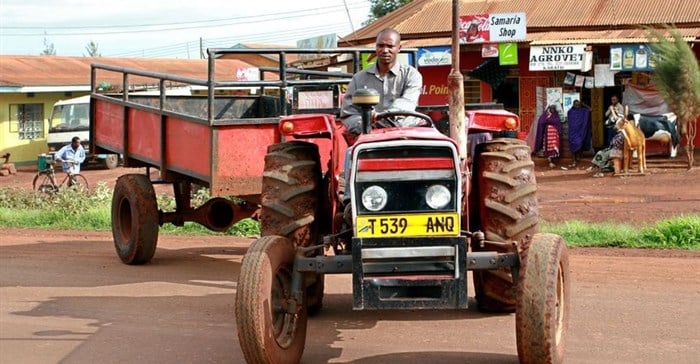$280m partnership to help drive inclusive agriculture transformation in Africa
Today we are launching a $280 partnership, #PIATA, to transform agriculture w/ @RockefellerFdn, @USAID, and @AGRAAlliance pic.twitter.com/iwC8rE7maq
— Gates Poverty (@gatespoverty) September 6, 2017
Together, the Bill & Melinda Gates Foundation, the Rockefeller Foundation and the United States Agency for International Development (USAID) will provide up to $280m to catalyse and sustain inclusive agricultural transformation in at least 11 countries in Africa, which will in turn increase incomes and improve the food security of 30 million smallholder farm households.
Achieving greater impact and value through strategic partnerships
The PIATA reflects a recognition that greater impact and value can be achieved through a strategic partnership that builds on what has been achieved by each partner across the continent, and pulls them together in ways that help catalyse and sustain transformation at scale.
The PIATA is an important collaboration between donors that aligns behind the Malabo agenda agreed to by African heads of state and government in 2014. It signals an enduring commitment to Africa’s transformation agenda. PIATA is but one of the various means by which each of the partners is supporting African countries to deliver on agricultural transformation. Its partners continue to provide support through avenues including direct support to continental agencies, government bodies, and in-country partners. The partnership will allow partners to align and complement existing efforts, making new investments in developing input systems, value chains, and policy where they will have the most impact.
Speaking at the launch, Mamadou Biteye, managing director of the Rockefeller Foundation Africa Regional Office said: "We are pleased to be part of PIATA. We see it as an opportunity to leverage even more from the partners and their huge networks, for greater impact. We are looking forward to deploying the technologies that we have helped develop over the years, together with our shared knowledge and grant support, to work with our esteemed partners. Together we hope to catalyse Africa’s pursuit of prosperity through agriculture. PIATA is critical in our ongoing push to build the resilience of farmers and systems that affect them, especially in light of increasing challenges such as climate change, among others.”

Agriculture still the best bet for inclusive economic growth
According to the 2017 Africa Agriculture Status Report, Africa needs an agricultural revolution that is distinct and that links millions of small farms to agribusinesses, creating extended food supply chains, jobs and economic opportunities for large segments of the population. Agriculture is still the best bet for inclusive African economic growth and poverty reduction.
Such a transformation will require greater political, policy, and financing commitments from across the public and private sectors. It will also require new partnership models like PIATA, which is hailed as an outstanding example of how partners can collaborating with African countries' visions and systems to deliver on their own transformation, in line with their national economic development strategies.
Rodger Voorhies, the executive director of the Global Growth and Opportunity Division of the Bill & Melinda Gates Foundation, said: “We’ve seen significant progress when countries recognise the critical importance of agriculture to their economic development and help catalyse agricultural transformation with targeted investments, evidence-based policies, and strong national plans. PIATA is an exciting platform that can help countries take the lead in driving agricultural transformation. Our investment reflects our desire to help countries develop high-quality plans linked to national and continental accountability frameworks.”
Each PIATA partners boasts strong networks of local, private sector and implementers from across the continent, which, through this platform, will benefit from stronger integration of investments and alignment of approaches to boost not only development but business outcomes as well.
Delivering on Africa’s potential requires public and private sector engagement
Delivering on Africa’s potential requires both the public and private sectors to engage in new ways and strengthen collaboration. The role of the private sector and non-state actors in agriculture development and in support of formulation of country agriculture plans is critical for sustainable growth.
This was emphasized by Sean Jones, the senior deputy assistant administrator, Bureau for Food Security, USAID. “PIATA offers a new way of doing business across the many public and private actors working to ensure food security and economic growth as called for in country-owned visions and the goals laid out in the Malabo Declaration. Agriculture is, at its core, a private sector enterprise and one of the best bets for job creation and inclusive growth when the right policies and investments allow the private sector to flourish. This partnership offers an innovative mechanism to unlock this investment and realise many of the targets laid out in the Global Food Security Strategy approved by our Congress.”
Partnership comes at a critical time for agriculture in Africa
The PIATA launch comes at a critical time in the continent’s agriculture history. Most African countries have undertaken a rigorous review of the sector, developing and adopting a new generation of sector development plans that prepare them to do business. Continentally, the African Union is coordinating the biennial review of the progress made towards the Comprehensive Africa Agriculture Development Programme (CAADP) goals, which will be presented in the first Biennial Review Report, along with a scorecard for the Heads of State to guide them in the sector’s transformation.
PIATA will shape how partners engage on the continent. Under PIATA, the partners have committed to delivering impact against a shared results framework and aligning PIATA country operations to national agriculture plans. This is the first time a partnership of this scale that is based on a shared results framework has been launched on the continent, its shared results framework is a significant achievement and the cornerstone of this partnership.
Welcoming the new partnership, Dr. Agnes Kalibata, president of the Alliance for a Green Revolution in Africa (AGRA), expressed her belief that the initiative would contribute significantly to accelerating Africa’s path to prosperity by growing inclusive economies and jobs through agriculture.
Scaling up support
“We have witnessed significant progress in our agricultural transformation over the past decade, with countries that have prioritised the sector recording notable drops in poverty levels, improved food security, and inclusive economic growth. PIATA will be critical in bringing key players together to support governments in their push to fully unlock the potential of Africa’s smallholder farming and agribusiness as the surest drivers of job creation and the continent’s inclusive economic transformation,” she said.
AGRA is the primary implementing institution of the partnership under the institution’s new strategy for the continent and plan agreed with priority countries. Founded in 2006, AGRA and its partners have spent more than a decade building the systems, tools, and knowledge required for an inclusive agricultural transformation. AGRA now sees the partnership as a way to scale up its support to country agricultural transformation and serve as a go to partner for governments.
The ultimate hope is that the PIATA model will attract other public and private players in the agriculture landscape to join and work together to support Africa on a path to prosperity through agricultural transformation.


Related
Codix Bio to produce HIV, malaria test kits amid USAid cutbacks 20 Jun 2025 #AEF2025: Unity will drive Africa’s energy revolution 17 Jun 2025 Wits scrambles to lessen fallout from Trump’s funding cuts 21 May 2025 FAO's geospatial initiative in Zimbabwe honoured with global award 8 May 2025 #Budget2025: Pushback over Fikile's D-Day announcement 8 Apr 2025 Eastern Cape blended finance scheme supports 30 agribusinesses 2 Apr 2025


























